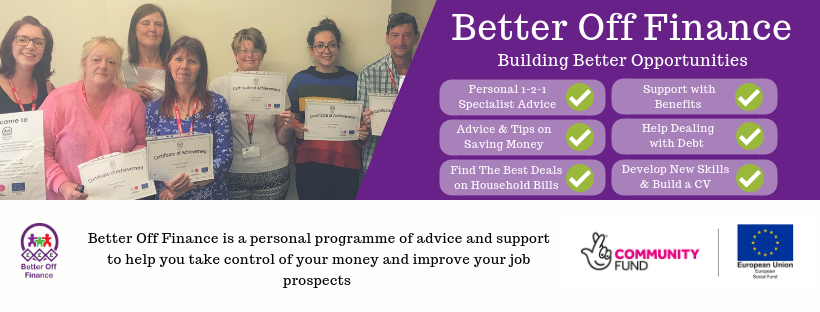The Women’s Organisation is
welcoming recommendations in a new report into the impact of Universal Credit.
The study published last week, by
the Resolution Foundation in partnership with the Liverpool City Region
Combined Authority, has called on the government to make vital reforms
including making Universal Credit more female-friendly. It says boosting work
allowances for single parents and second-earners would boost their work
incentives and increase household incomes.
As part of its research, the
Foundation carried out in-depth interviews across the Liverpool City Region
(LCR). The area was one of the first areas to receive Universal Credit, and a
higher proportion of working-age families are on UC than across the country as
a whole (31 per cent for LCR, compared to 24 per cent for the UK).
The interviews focused on recipients’
experiences of various aspects of the new system and uncovered a number of
areas where further improvements are needed.
The report also said that they were
almost universally positive about the other organisations that were supporting
with financial or employment-related issues.
One of these is Better Off Finance,
an innovative partnership led by social enterprise The Women’s Organisation and
funded by Building Better Opportunities via the European Social Fund, along
with the National Lottery Community Fund.
It helps people better manage their
money, instil financial resilience and prepare and move into sustainable
employment.
Its services include helping with
benefits, ensuring people are receiving their full entitlement, and helping
reduce debts to make peoples’ money go that bit further.
The initiative began in 2017 and so
far it has signed up 1,174 people across the Liverpool City Region, with nearly
two-thirds of them women. (64% female and 36% male. All were unemployed and 49%
had a disability.)
Maggie O’Carroll,
CEO of The Women’s Organisation, said: “Last week’s report shows the damaging
effect which Universal Credit is having on our communities. While the
roll out of Universal Credit may have been intended to simplify the welfare
system, we have found that it compounds common issues for many of the most
vulnerable who we work to support.
“Not only
does it create a very real barrier for those who may wish to explore the route
of self-employment to improve their own personal and financial circumstances, the
one payment per household system poses an even greater threat to vulnerable
women who may be at risk of domestic abuse. That’s why it’s so important that
programmes like Better Off Finance are equipping people with the tools to
become more financially mobile.
“We’re
proud to be working with Citizens Advice across the Liverpool City Region on
the delivery of Better Off Finance, which is helping those who are most
vulnerable to take control of their finances, become more resilient and gain
the all important confidence to take their next steps into sustainable
employment”.
 |
| Maggie O'Carroll, CEO of The Women's Organisation |
Among Better Off Finance’s success
stories are Catharine Ramage, who left her teaching job due to ill health and
was unemployed for seven years. Better Off Finance helped her become more
financially savvy and regain control of her personal finances, saving £100 a
month. Feeling empowered to take her next steps into self-employment, Catherine
is now a small business owner.
She said: “My
key worker gave me tools for life to maximise my income and minimise my
outgoings. I always tended to bury my head when it came to this stuff – now I
have the confidence to find and negotiate better deals for monthly necessities.
“Today, I am a business-owner running my own editorial business from home. My mentor made me
feel like they really cared about helping me to improve my situation – not that
they were just ticking boxes or trying to ‘push’ me back into work. They took
the time to understand my circumstances and give me a personalised service. I feel really lucky to live in a
city where these services are available to me”.
Metro Mayor of the Liverpool City
Region Steve Rotheram said: “As it
stands, Universal Credit disproportionately punishes the most vulnerable will
leave a majority of families in our region worse off.
“I’ve been
an opponent of UC since day one, but the reality is that this government aren’t
going to scrap it. They have to listen to those on the frontline and undertake
reforms like those suggested in our report to make things more manageable for
people who are struggling.
“UC should
offer a genuine safety net rather than forcing people to wait five weeks wait
for a first payment and penalising them for finding work.”
 |
| Metro Mayor of the Liverpool City Region Steve Rotheram |
To find out more about Better off
Finance contact hello@thewo.org.uk
or call 0151 706 8111.






